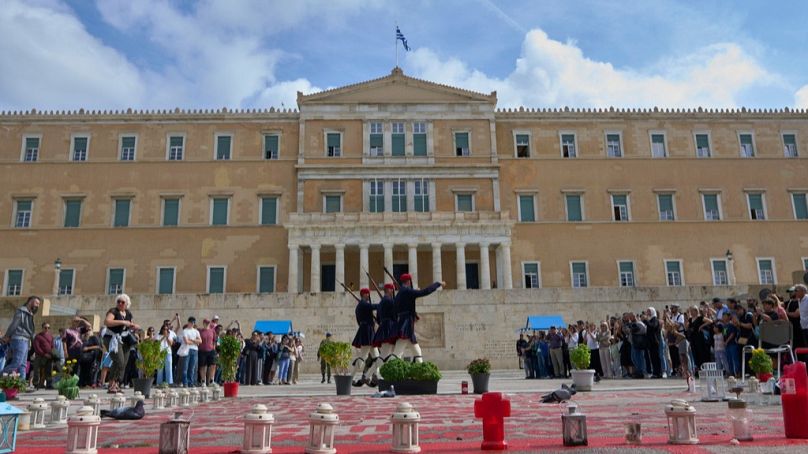Opposition parties claim the move is an attempt to stop anti-government rallies from taking place at the site.
Greece's conservative government has proposed banning protests at the Tomb of the Unknown Soldier in Athens, triggering an outcry from the opposition.
Prime Minister Kyriakos Mitsotakis' government on Tuesday submitted an amendment to the law governing the care of the monument, resulting in a fiery parliamentary debate.
Four opposition parties lodged objections, saying that the amendment is unconstitutional and curbs citizens' right to free expression and protest. Greece's left-wing Syriza party called for a protest on Tuesday evening.
The monument — a cenotaph in honour of those who have died fighting for Greece — is a popular tourist stop for visitors wanting to see the hourly changing of the presidential guard. It is also frequently the site of anti-government demonstrations.
The amendment tabled by the government would allow visitors but would ban protests or physical changes to the area. Offenders would face a fine or up to one year in prison.
"The aim (of the amendment) is not divisive. The aim is the respect, the reinforcement of respect for a sacred monument," government spokesman Pavlos Marinakis claimed on Monday.
However, opposition parties argue the move is a direct reaction to anti-government rallies over the 2023 Tempi disaster, the country's most deadly ever rail accident.
After the fatal crash in February 2023, the space in front of the monument became the focal point for demonstrations led by some of the relatives of the victims.
The disaster, in which a freight train and a passenger train heading in opposite directions collided after being put on the same track, killed 57 people, mostly university students.
The crash has become a major political issue in Greece.
It exposed severe deficiencies in Greece’s railway network, including in safety systems, and triggered mass anti-government protests. Critics accuse authorities of failing to take political responsibility for the disaster or holding senior officials accountable.
The trial of 36 people charged in connection with the crash is scheduled to start in March 2026.












